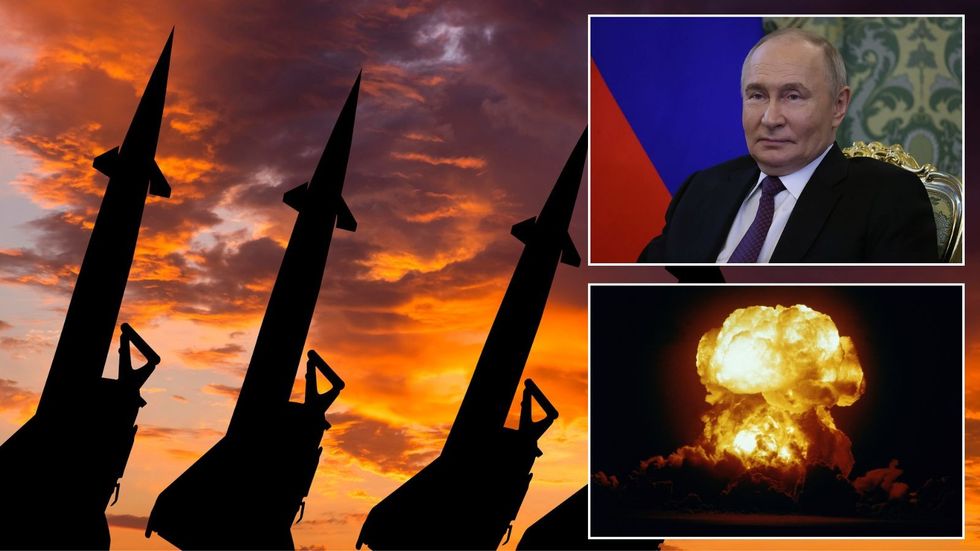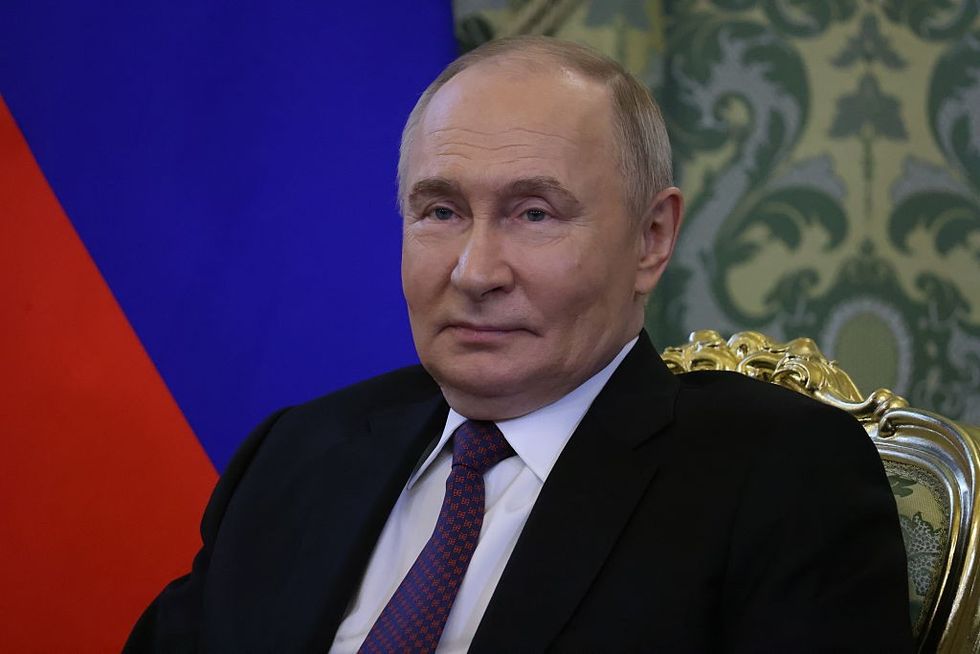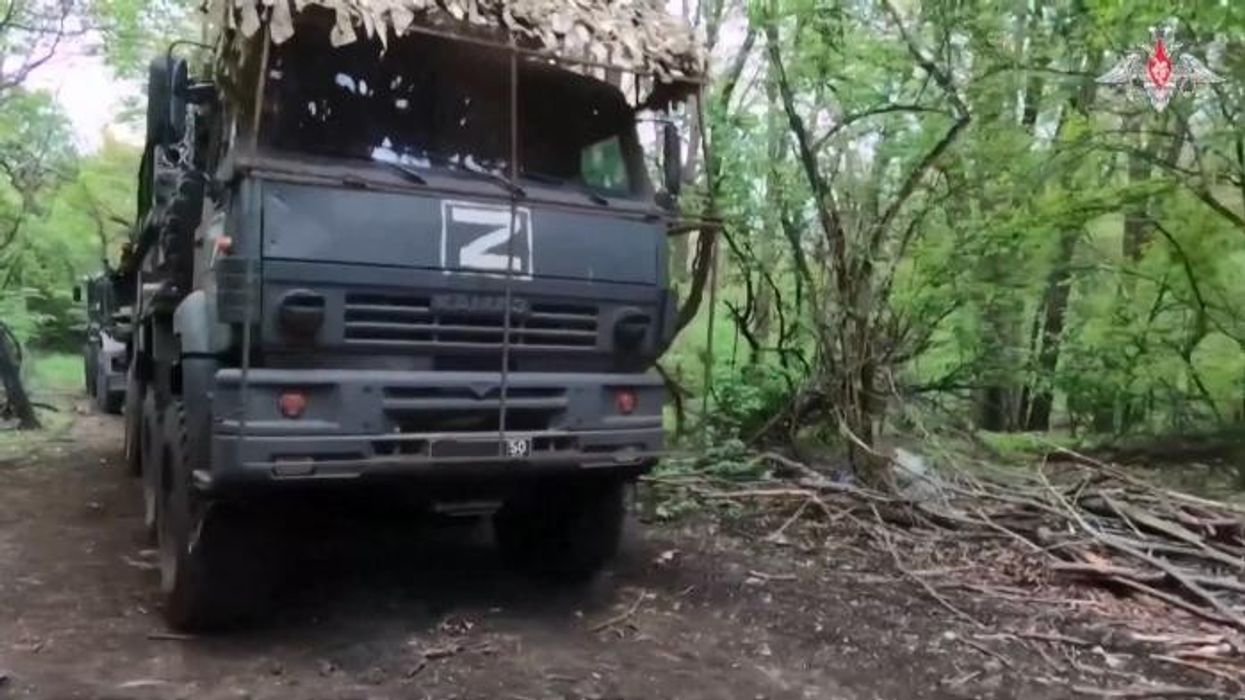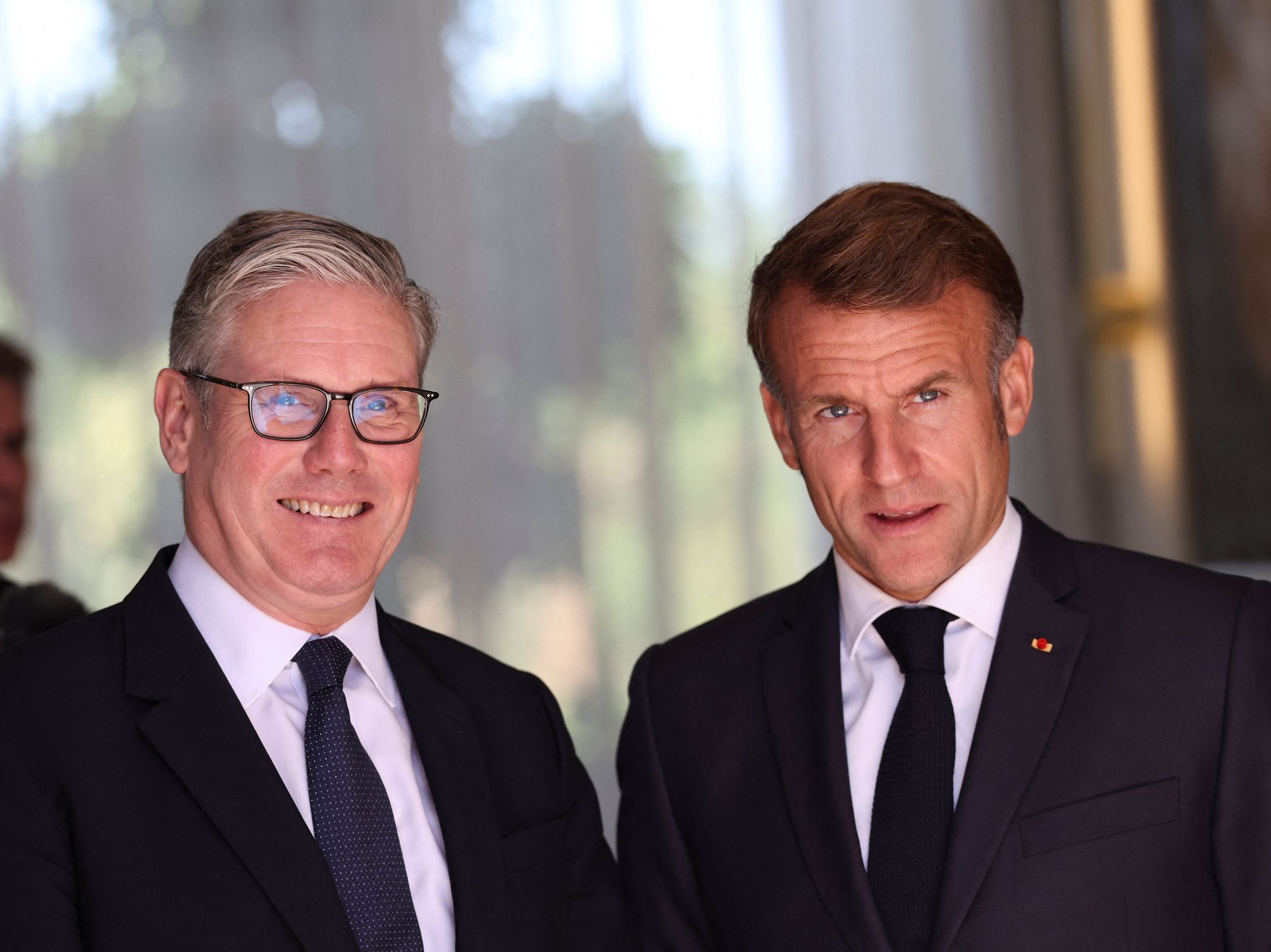Nuclear weapons 'now justifiable' by Russia as new doctrine sparks serious concerns for the West
Analysts said the latest Ukraine attack should could be a warning to countries of significant military capability
Don't Miss
Most Read
Trending on GB News
Nuclear weapons are now justifiable by Russia, a political expert has warned following Ukraine’s drone attacks.
Speaking to GB News, Stephen Hall, a lecturer in Russian politics at the University of Bath, explained about how the updated Kremlin nuclear doctrine should spell concern for the West.
He said: “If nuclear missiles or systems that can fire those missiles are attacked, that could constitute a decision by the Kremlin for a nuclear response.”
Among the key targets for the attack were Tu-95, Tu-160 and Tu-22 bombers, which are capable of carrying nuclear weapons and have been one of the key components of Putin’s bombing campaign of Ukraine.

Nuclear weapons are now justifiable by Russia, a political expert has warned following Ukraine’s drone attacks
|Getty
A-50 support aircraft were also targeted during the attack.
Kyiv has claimed that 41 of these strategic bombers have been damaged and “at least” 13 have been destroyed. Moscow has denied that any aircraft have been destroyed and claims that only some planes were damaged.
Operation Spiderweb, which took place over the weekend, was a daring operation which was 18 months in the making by Ukrainian forces.
Sources in the SBU claim that the operation involved over 100 drones, targeting four separate airbases within Russia.
Belaya in the Irkutsk region in Siberia, Olenya in the Murmansk region, which is within the Arctic Circle, Ivanovo to the north-east of Moscow and Dyagilevo, which lies to the south-east of the capital, where all simultaneously attacked during the operation.
LATEST DEVELOPMENTS:
Belaya airbase lies over 2,500 miles from Ukraine’s border, demonstrating the ambition of the attack.
Professor Hall further outlined the complexity of carrying out such an operation, which targeted locations that were thousands of kilometres apart from one another.
He said: “Convincing Russian lorry drivers, filling lorries up with drones, getting them into Russia, and doing it all remotely. Remotely removing lids, remotely opening tops of lorries and remotely fly the drones off and do the damage.”
“It’s a significant development seeing the Ukrainian’s pulling this off.”
The Ukrainian President Volodymyr Zelensky heralded the operation as an “absolutely brilliant result.”
He said: “Russia has had very tangible losses, and justifiably so.”
However, Professor Hall did emphasise that he thought the possibility of a nuclear response from Russia was unlikely.

Speaking to GB News, Stephen Hall, a lecturer in Russian politics at the University of Bath, explained about how the updated Kremlin nuclear doctrine should spell concern for the West
|Getty
“The Kremlin is not as isolated as the West would like to believe, it has allies in India and China and in the global south that are working with the Kremlin," he added."
"If Russia were to use a nuclear weapon against a non-nuclear power such as Ukraine, that would break those alliances.”
Analysts have said this attack, whilst clearly methodically planned over months with the support of Western allies, should could be a warning to countries of significant military capability.
Tom Shugart, a defence analyst at the Washington think tank CNAS, highlighted his concerns that such an attack could be feasible on the US.
He said on X: “Containers at rail-yards, on Chinese-owned container ships in port of offshore, on trucks at random properties…spewing forth thousands of drones that sally forth and at least mission-kill the crown jewels of the [us Air Force].”
The Hudson Institute, another Washington based think tank, also highlights how the US would be woefully underprepared if such an attack would be inflicted by China.
“The United States’ airfields face a threat of severe Chinese military attack… the US military has devoted relatively little attention, and few resources, to countering these threats compared to developing modern aircraft.”
It comes after Sir Keir Starmer’s recent announcement at the Strategic Defence Review to develop a dozen nuclear attack submarines, in parallel with Australia and the US through the AUKUS pact.
The review also promised a £15 billion investment in the “sovereign warhead programme”, essentially the development of more nuclear weapons.
This is primarily in response to Russia’s aggression against Ukraine.
John Healey, the Defence Secretary, said that the announcement of an increase in nuclear armament was aimed to “send message to Moscow”.
“This is Britain standing behind making out Armed Forces stronger but making our industrial base stronger, and this part of our readiness to fight if required.”
More From GB News











